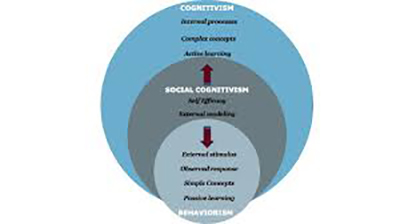Cognitivist models of motivation primarily emphasize cognitive processes (→ cognition) in explaining employee behavior and motivation. These models highlight the role of mental processes, such as thinking, perception, and belief, in shaping motivational dynamics at work, moving beyond the focus on emotional or energetic aspects like motives and motivation.
Key Concepts in Cognitivist Motivation Models
Cognitivist motivation theories consider how individual perceptions and expectations influence behavior. The following two approaches are central to understanding cognitive motivation:
-
Expectancy-Valence Theories
These theories assert that employees are motivated by the perceived likelihood that their efforts will lead to a desired outcome. They evaluate both the expectancy (belief in achieving the desired result) and valence (value attached to the outcome) to determine motivation. -
Achievement Motivation Theories
These theories focus on an individual’s need for achievement and their drive to perform well in challenging situations. Achievement motivation is linked to the desire for success and the avoidance of failure, where people pursue tasks based on their confidence in succeeding.
Shifting Focus
While traditional motivation theories have largely focused on emotional or energy-based explanations of behavior, cognitivist models incorporate cognitive variables that consider how individuals interpret and process information about their environment, tasks, and goals.
« Back to Glossary Index





![15 Employee Offboarding Templates That Save Hours of HR Time [Free Downloads] 15 Employee Offboarding Templates That Save Hours of HR Time [Free Downloads]](https://i1.wp.com/www.hrcloud.com/hubfs/Header.png?w=150&resize=150,100&ssl=1)
